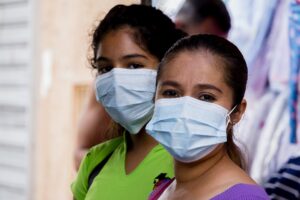Leaders all over the world have the inherent responsibility to provide vision and direction, set policies, determine bottom lines, define and nurture culture, and to keep their people safe.
The recent events of COVID-19 and George Floyd’s murder now weigh heavily on leaders to continue stepping up and do something. Many have already done a fantastic job. Leaders in state and local government, religious entities, health organizations, sports, professional athletics, education, tech and software, and other business organizations have set high standards for how to handle both the COVID crisis and the support of “Black Lives Matter” protests and rallies. The latter is now awakening the country to the systemic injustices that still haunt us daily.
These simultaneous crises are placing new challenges on new and seasoned leaders alike.
Complex challenges such as these are sure to keep leaders busy trying to help employees and business teams stick together and provide a focus for pressing work. Most companies have more than one person working in the organization. And the more people, the higher the chance of differing opinions. Companies with hundreds or thousands of employees have just as many views, differences, backgrounds, and understandings.
How can leaders navigate their companies, employees, teams, communities, and families with authentic compassion amid the health and racial crises that have been the focus for the past several months and weeks?
Where do we begin?
1. Have the Conversations
It all begins with conversations.
Sometimes fear plays a role in having difficult conversations. What if I say something wrong? Or if I’m wrong about the COVID virus? How can I avoid offending someone when I ask about racial issues? How can I ask intelligent questions? I don’t know what to say.
Having conversations about complex issues is challenging, but doing so illuminates the different opinions and options available to tackle the crisis. Conversations elevate issues, putting them front and center, and allowing transparency. If everyone sees and hears the discussion, then plans, progress, and change can follow.

With COVID-19, as soon as we had more information, better decisions and guidelines emerged. We lost thousands of lives because we didn’t act quickly enough or have enough information to validate a direction or send out a confident plan of action. When the conversations began, we immediately changed course and took steps that were helpful to start to slow the spread.
Unlike COVID-19, with racial injustices, we’ve had the information, yet chosen not to take the necessary action to abolish inequities. We have not had enough discussions or enough understanding. When brought to the light, someone has always pushed it aside or found an excuse why we don’t talk about it.
Now, with the recent death of George Floyd and other Black Americans, the issue is not only back on stage, but it has pounced on the very heart of the United States, with many Americans, of all races, infuriated and angered by the events.
We aren’t as free as we claim to be.
To continue to have open discussions, we have to give each other some grace. Freedom to make mistakes in asking questions or running the risk of saying something wrong is a possibility. Helping each other understand the different points of view will only take place openly and honestly when all sides dismantle the walls and allow the conversations, even the flawed ones, to occur. If we lose the fear of saying something wrong or of not knowing what to say and just speak from our hearts, better things will happen.
We can do better, but we can’t let fear stop the conversations.
2. Become Better Listeners
Great conversations are not ones that only flow one-way. This point is one of the most important tips. Be great listeners.
Listening is part of a great conversation. It’s hard to continue to listen when you don’t agree with what’s said, I know. You want to jump right in when you begin to disagree, and you want to correct the statement. But by waiting until someone finishes speaking, without interruptions, each person feels heard and can get the desired thoughts or questions out.
Good conversations ignite more conversations, which ultimately lead to real change.
If we had listened to initial warnings about COVID-19, presumably, thousands of lives would have been saved. By listening, we could have prevented more of the ongoing spread. It’s hard not knowing, understandably. We’ve never seen anything of this magnitude before. But thankfully, many leaders managed to engage with experts, put expedited plans together, and made a quick difference in their respective communities.
The same is true with racism. If we had simply listened, lives would have been spared. Learning takes place when open dialogue flows back and forth equally between participants, with all opinions and comments included, and heard, in the conversations. We, as a nation, have not done a great job of listening.
Active listening is a must for critical change to happen.
3. Make an Effort to Gain Exposure
Everyone gets caught up in their insular worlds. We’re all busy. We all work very hard at what we do. We’re running organizations or a team or a classroom or a hospital. We seldom take time to see what’s happening outside our busy world. If it’s not affecting us directly, we put it off to the side and get back to work. We may or may not come back to it.

When COVID-19 was in China, it was thousands of miles away, so we didn’t take it too seriously. But when it hit home, then and only then did we start acting. By that point, we had lost weeks and potentially months.
It’s up to us to gain exposure to what is taking place around the world on health, race, and every other issue that occurs. We are a global society, not a local one. Those days are long gone, and COVID will not be the last health issue. We’re likely to see more viral threats and resurges. Leaders must continue to prepare plans of action out into the future.
Similarly, with racism, it’s up to us to expose ourselves to people that do not look and think like us. As a former coach, I used to encourage athletes all the time to get out of their comfort zones. That’s where real learning and growing take place.
Leaders can do a lot to bring to light the differences that exist in the workplace and the community. Diversity training, hiring the right people, celebrating milestones, organizing teams, and assigning projects to diverse groups are simple ways to highlight, honor, and grow diversity. Exposure is education, and we need more of it.
Who are the people with which you spend most of your time? What is the makeup of that group? Are you exposing yourself, colleagues, and your families to racial injustices? What are your employees learning from the leaders on racial matters? What are children learning from their parents regarding race?
Leaders can make a positive impact. We must stand with people who are different from us, become an ally, raise their voices, and do what’s right.
4. Take Responsibility to Educate
Knowledge is half the battle. If we take responsibility to educate ourselves and others, things will change quicker than if we don’t educate at all. Learn as much as you can to educate yourself and understand that this will be a continuous process.
Understanding each other is a pathway to enlightenment.
With COVID, it was tough, because the information was missing. We didn’t know what we didn’t know. We had to play catch up, like cramming for a college exam. Every day we gain more knowledge and make better decisions as a result. This education will have to continue until we find a cure, a vaccine, or a treatment for this pandemic.
With racism, however, the information has not been missing. We’ve just decided not to pay attention to it. We have chosen to look the other way. Injustices are here to stay until we, as leaders, decide that injustices no longer apply to a free society.
A common mistake is to think that these issues don’t apply to me. I’m young and not compromised, so COVID does not affect me. Or I’m not a racist, so these matters are not mine. The truth is, every issue affects everyone else. We are all neighbors, and we have a responsibility to each other. Every action has another reaction, and the process continues.
With COVID, we are making grounds, but we still have a long way to go. Education and understanding remain vital factors in the success of defeating the virus. All the experts in the United States and abroad are working to find solutions and to educate the public. Stay tuned.
When it comes to equality for all humans, we have an even longer way to go. We all have an unconscious bias that puts us in different places on the continuum of racism and inequality. We only know what we know and what we have experienced. That is not an excuse by any means, but it does demonstrate the need for more education. The more we educate ourselves, the more we build a sense of compassion and empathy for all injustices.
If we keep a blind eye, these inequalities will never dissolve, and we will continue to deal with this for generations to come, yet again. The cycle will continue.
When education emerges into healthy conversations, the walls remain low, and the words, which do matter, are better heard and understood.
5. Avoid Silence
Silence is not helpful. It was not useful to the COVID crisis, and it’s not conducive to the discussion about racism and inequalities. As leaders, we must speak to the indifferences and stand up for what is right, peacefully. Each of us has a role to play. We can make any situation better, or we can make it worse. That is a choice. Doing nothing is also a choice, usually one that exacerbates the situation.

George Floyd would likely be alive today if someone would have said something or done something. The choice to watch and be silent turned deadly.
It’s no doubt more comfortable to live in our bubbles and keep to ourselves. As leaders, though, we have a responsibility to stand up for our employees and our communities, and not just the people that look and think like us, but everyone. It takes a brave person to go against the grain when it’s the right thing to do. History is full of men and women who have successfully done just that—redirecting and reshaping the path for so many others to have the freedoms and opportunities that we do have.
Leaders of all levels can do the same. Model the behavior we would like to see, and the change we want to see will appear. It will take shared responsibility.
Open Our Ears and Hearts
The anger. The angst. The uncertainty. It is real, and it is warranted.
We need to open our ears to hear the hurt and the angst and the anger in this country right now and open our hearts to want to do something about it. Life, as we know and understand it, is taking a turn, and we must come together to help heal those hurting because of losses caused by COVID and others hurting because of the recent horrific events, including the death of George Floyd.
Peaceful conversations, demonstrations, and actions, as opposed to shouting matches and violence, for example, have a better chance of reaching the ears and hearts of all Americans.

